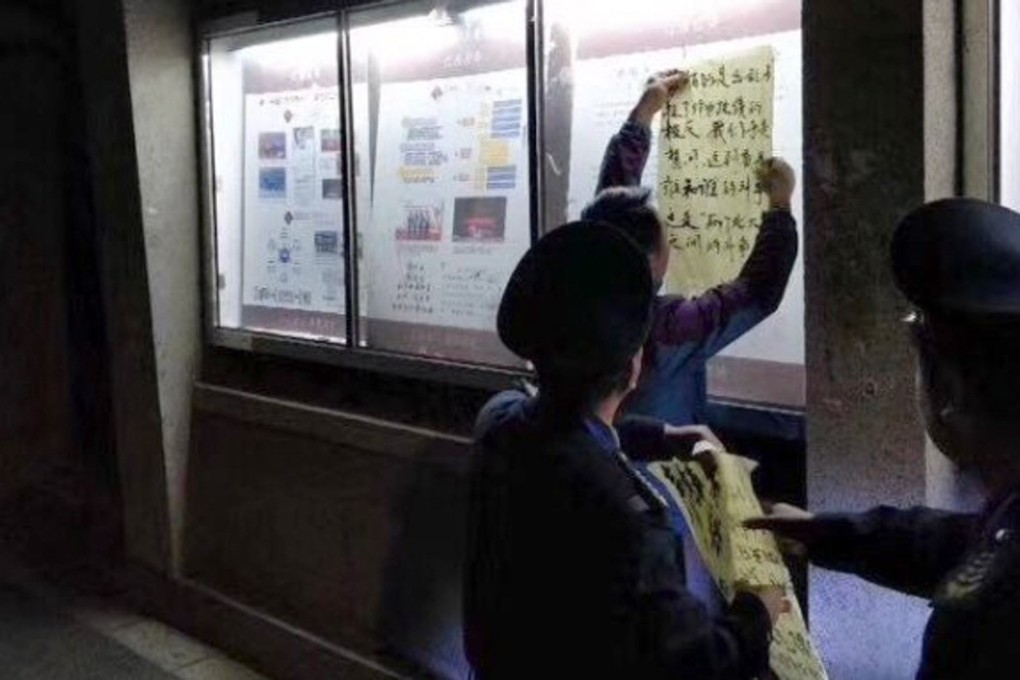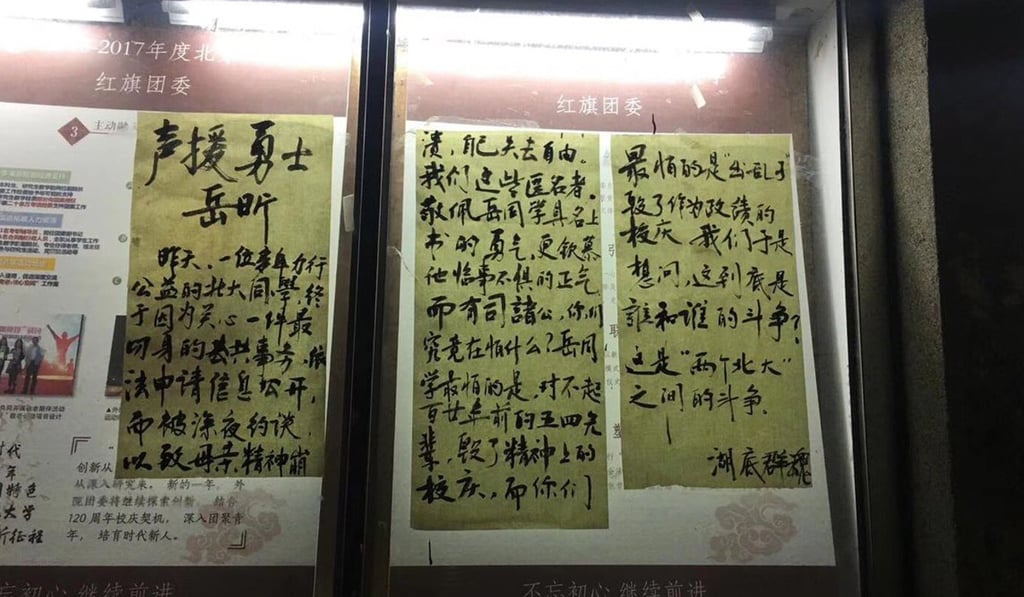Chinese students push back against Peking University as #MeToo activist accuses college of intimidation
Outspoken undergraduate says China’s top university is trying to silence her for demanding information about a sexual misconduct case that led to student’s 1998 suicide

A public backlash has erupted on social media after a student accused China’s top university of trying to silence her for demanding information about the handling of a sexual misconduct case that led to a star pupil’s suicide 20 years ago.
The backlash even prompted a response from the People’s Daily, the party’s official mouthpiece, urging calm on both sides.

A set of three posters was also put up anonymously on campus information boards on Monday night, criticising the university for trying to silence Yue. The posters were removed by campus security within an hour, but photos of it had already gone viral online.
Yue is an activist in the growing #MeToo movement against sexual harassment on Chinese campuses and in workplaces.